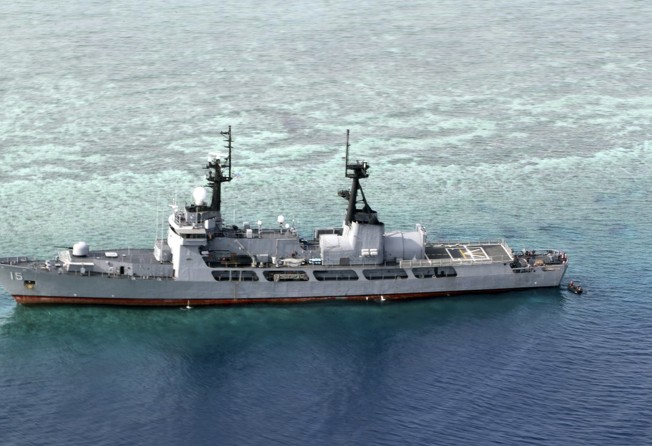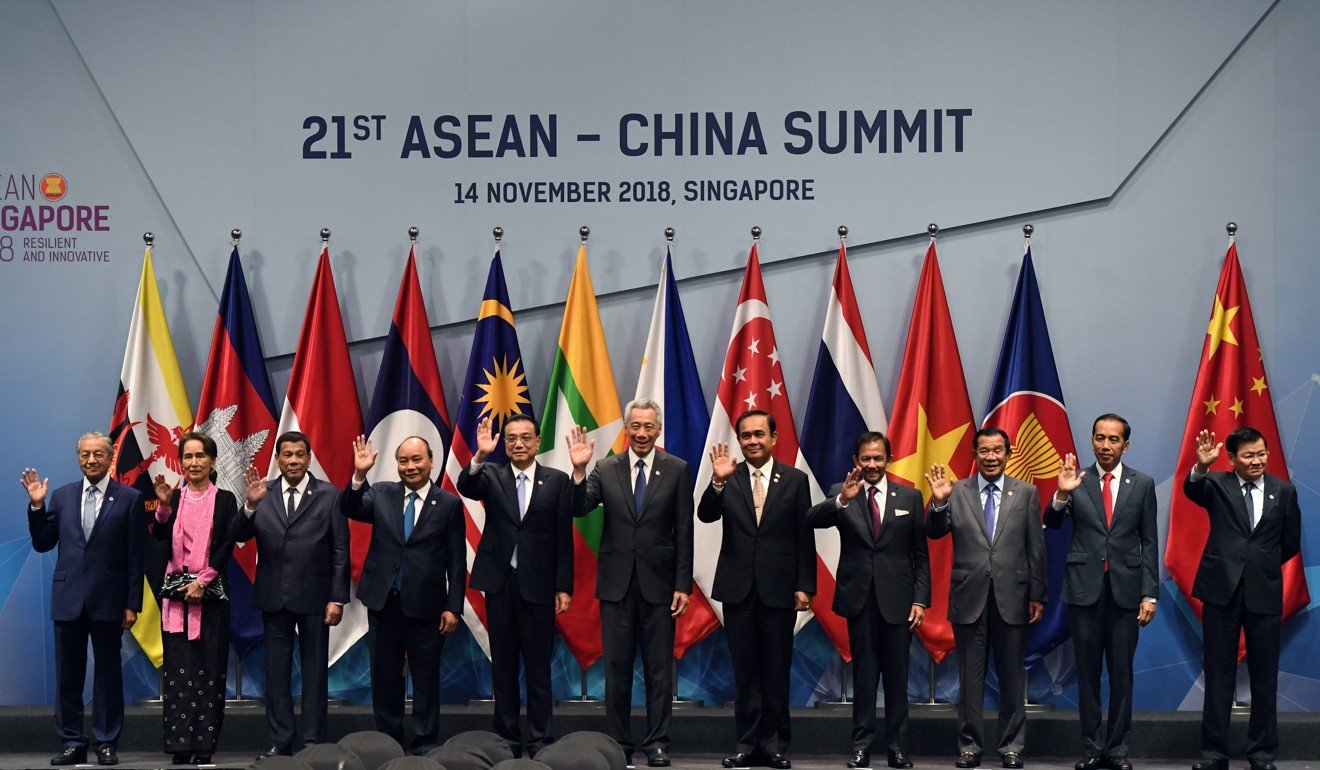Can a South China Sea code of conduct help ensure regional stability? Here are four ways it could be strengthened
- Aaron Rabena says the leaked draft negotiating text for a code of conduct in the South China Sea indicates that progress has been made. However, more could be done on geographic scope, duty to cooperate, the role of third parties and legal status

The China-Philippines Scarborough Shoal stand-off in 2012, the China-Vietnam oil-rig incident in 2014, China’s island-building and militarisation operations, the Philippines’ Permanent Court of Arbitration landmark victory in 2016 and the regular US-led freedom of navigation operations all highlight the inefficacy of the 2002 Declaration on Conduct (DOC) of Parties in the South China Sea and the complex interplay of economic, environmental, legal, political and strategic issues.
The announcement of the Single Draft Negotiating Text for a code of conduct in the South China Sea last August by the Association of Southeast Asian Nations and China has raised hopes that such a code will ensure lasting peace and stability in the South China Sea.
While details of the text have yet to be officially issued, a leaked draft includes five critical issues for negotiations – “geographic scope”, “dispute settlement”, “duty to cooperate”, “role of third parties” and “legal status”. In these, the code has gone farther than the declaration on conduct with respect to dispute settlement and duty to cooperate. Proposals on dispute settlement have included options such as conciliation, mediation and the activation of the High Council for the Treaty of Amity and Cooperation.
On duty to cooperate, particularly maritime cooperation, the declaration’s five areas of non-traditional security cooperation have been expanded to include illegal fishing, marine connectivity, and oil and gas resource cooperation. However, China has floated the idea that cooperation related to the marine economy should not include extra-regional countries.
As for confidence-building measures, in addition to military exchanges, humane treatment of people in distress and voluntary notification of impending joint military exercises stated in the DOC, the code of conduct warrants that an exchange of information, mutual port calls of military vessels and joint patrols and military exercises be done on a regular basis. China also seeks to ensure that a veto power can be exercised over joint military exercises that are to be conducted with extra-regional countries.
On self-restraint, the Philippines has suggested traditional fishing rights and access to features and fishing grounds be guaranteed while Vietnam has proposed that there be no further construction of artificial islands, militarisation of maritime features, blockade of vessels carrying provisions and personnel, declaration of Air Defence Identification Zones, and the simulation of attacks involving aircraft and vessels from other claimant countries.
These calls for proscribing specific actions are vital because the absence of technical specificity has led to unpredictable behaviour and regional instability. This is why, regardless of rounds of non-traditional security cooperation workshops and dialogue, security complications recur, and confidence-building measures, such as maritime/naval exercises, hotline communication and a Code for Unplanned Encounters, appear to be token gestures.
While progress has been made, more could be done on geographic scope, duty to cooperate, role of third parties and legal status. First, the code’s area of coverage should explicitly include the Paracels, Scarborough Shoal and the Spratlys because these are the areas where maritime incidents have reached crisis levels. Tensions in these areas have compelled claimant states, such as the Philippines and Vietnam, to take their case to Asean.
Second, duty to cooperate may include the establishment of joint marine protected areas, a regional fisheries organisation and an integrated maritime tourism programme in the Spratlys. China’s artificial islands, given their advanced maritime infrastructure, could be designated as a hub for promoting non-traditional security cooperation such as marine scientific research, disaster prevention and mitigation, and humanitarian assistance and disaster relief.
By involving China in fostering regional public good and demonstrating compliance with international environmental laws, threat perceptions about the military functions of China’s man-made islands can be reoriented.
With respect to self-restraint, prohibitive clauses should extend to the non-unilateral deployment of oil rigs and energy exploration, the avoidance of hostile language in radio warnings to approaching foreign aircraft, not condoning illegal fishing practices and not using grey-hulled ships in apprehending lawbreaking fishermen. Additionally, the notion of “militarisation” needs to be clearly defined because some equipment and facilities such as “weather observation stations” have “dual-use” functions.

Third, apart from China, major powers such as Australia, France, Japan, India, the UK and the US have a geopolitical stake in the South China Sea because a presence in the waterway is crucial to projecting military power, accumulating political power through the potential blockade of maritime commerce, and maintaining the liberal international order.
Since China believes the US is the main instigator of instability in the South China Sea and that it merely responds to American military “provocations”, including the US as a party to the code of conduct should be considered; a code that does not bind Washington would only continue to cause trouble for Beijing. If the US participates, other major powers would also accede. Alternatively, China in relation to the US and other major powers could articulate its own framework.
Fourth, for the code to be legally binding, there should be a provision prescribing the sanctions or penalties in the event of defection or non-compliance by any of the claimant states.
For Asean, the code of conduct is important in illustrating institutional capacity and centrality. For China, it is an opportunity to mitigate the cost to its reputation of the creation and militarisation of artificial islands. But should the code fail to be effective, both Asean and China’s credibility in managing regional security issues would seriously be eroded.
Aaron Rabena is a programme convenor at Asia-Pacific Pathways to Progress and an associate fellow at the Philippine Council for Foreign Relations